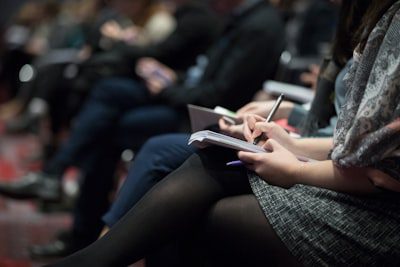Ganta, Nimba County — More than thirty journalists from every corner of Liberia have come together in Nimba County for a groundbreaking two-day workshop designed to strengthen the nation’s fight against corruption. The event, held in the bustling city of Ganta, brought together media professionals representing all 15 counties, underscoring the growing recognition that the press plays a central role in promoting transparency, accountability, and good governance.
The initiative was spearheaded by the Liberia Anti-Corruption Commission (LACC) in collaboration with the United Nations Development Programme (UNDP) and the United Nations Peacebuilding Fund. It aimed to equip journalists with the knowledge, tools, and ethical frameworks necessary to investigate corruption cases effectively and report them responsibly.
Empowering the Fourth Estate
During the workshop, participants engaged in intensive sessions covering investigative techniques, fact-checking methods, and strategies for holding public officials accountable without compromising professional integrity. Trainers emphasized the critical role of journalists as watchdogs in a democratic society, capable of exposing wrongdoing and catalyzing reforms.
According to LACC officials, empowering journalists is a strategic investment in Liberia’s democratic future. “When the media has the skills and confidence to investigate corruption, it becomes much harder for bad actors to hide their activities,” one senior LACC representative explained.
A Nationwide Commitment to Transparency
The diversity of participants — drawn from remote rural communities, regional hubs, and the capital city — reflects a nationwide commitment to confronting corruption at every level of governance. For many attendees, the workshop was their first opportunity to connect with peers from other counties and share the unique challenges of reporting in environments where access to information is often restricted.
“Corruption affects every sector of our society, from healthcare and education to infrastructure,” said one journalist from Grand Bassa County. “If we can coordinate our efforts and strengthen our skills, we can ensure that no story goes untold and no abuse goes unchallenged.”
The Challenges of Anti-Corruption Reporting
Participants were candid about the difficulties they face. Threats, intimidation, and limited resources make investigative journalism a risky profession in Liberia. Some journalists described being pressured by local authorities to drop stories or facing lawsuits designed to silence their reporting. Others noted the challenge of gathering reliable data in regions where government records are poorly maintained or deliberately concealed.
To address these issues, trainers introduced digital tools for secure communication, data storage, and information gathering. They also discussed legal protections available to journalists under Liberian law and how to seek assistance from press freedom organizations when facing harassment.
The Role of International Support
The involvement of the UNDP and the UN Peacebuilding Fund highlights the international community’s ongoing commitment to strengthening Liberia’s governance institutions. Both organizations have been key partners in supporting reforms and capacity-building initiatives since the country’s recovery from years of civil conflict.
By funding training programs and fostering collaboration between civil society and the media, these agencies aim to create an environment in which corruption cannot thrive unchecked. UNDP representatives at the workshop stressed that anti-corruption efforts are essential to sustainable development and peacebuilding.
Why Journalistic Independence Matters
One of the recurring themes during the training was the importance of maintaining editorial independence. Trainers reminded participants that the credibility of the press depends on its ability to report without bias, political influence, or personal gain. “The fight against corruption is not about targeting individuals for political purposes,” one facilitator explained. “It’s about uncovering the truth and ensuring that public resources serve the people.”
Several case studies were discussed, illustrating how independent journalism has led to policy changes, criminal prosecutions, and the recovery of stolen assets in other countries. These examples served as a reminder that even in challenging environments, persistent and ethical reporting can yield tangible results.
From Training to Action
While the workshop provided valuable theoretical knowledge, it also emphasized practical application. Participants worked in teams to develop mock investigative projects, complete with source lists, interview strategies, and verification processes. These exercises encouraged collaboration and demonstrated how journalists from different regions can pool resources to investigate large-scale corruption schemes that cross county lines.
At the close of the event, the LACC encouraged participants to remain in contact and form a nationwide network of anti-corruption reporters. Such a network, they suggested, could coordinate investigations, share tips, and amplify stories that might otherwise be buried in local news cycles.
Public Expectations and the Road Ahead
For the Liberian public, the success of such training initiatives will be measured by the impact they have on the quality and depth of reporting in the months to come. Citizens frustrated by persistent graft in public institutions are looking to the media for evidence-based, fearless journalism that demands accountability from leaders at every level.
“People have lost trust in many institutions because they see corruption going unpunished,” said a participant from Lofa County. “The media has the power to change that narrative, but we must work together and work smart.”
Conclusion
The Ganta workshop marks an important step in Liberia’s broader anti-corruption movement. By equipping more than 30 journalists with advanced investigative skills and fostering collaboration across county lines, the LACC, UNDP, and UN Peacebuilding Fund have laid the groundwork for a more vigilant and effective press. If participants apply what they have learned and maintain their commitment to truth and independence, they could become a driving force in holding the powerful to account and protecting Liberia’s democratic future.
Ultimately, the fight against corruption in Liberia will require sustained effort from every sector — government, civil society, and citizens alike. But with a newly trained corps of determined journalists ready to shine a light on wrongdoing, the country has taken a decisive step toward greater transparency, stronger institutions, and a more just society.
for more news visit our websit africaheritagevoice.com




